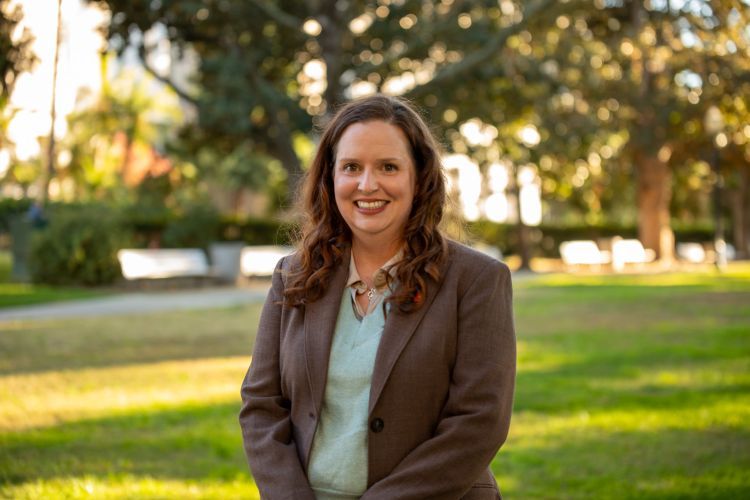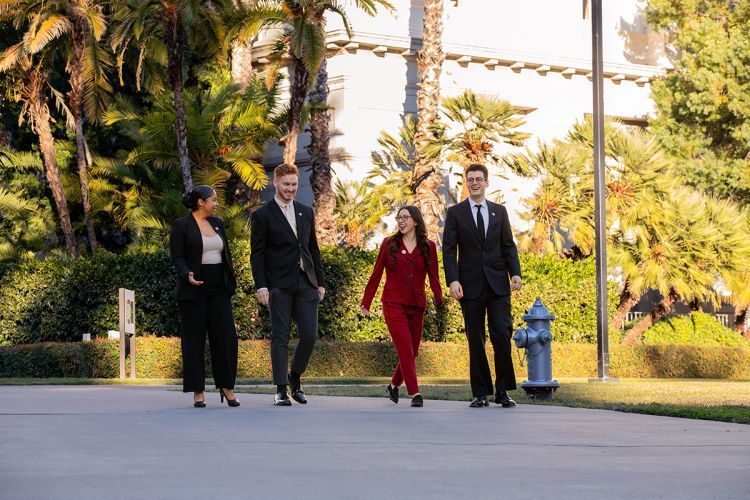Breadcrumb
Alumni in Academia: Alumna finds passion in legal education

Shakira Pleasant, ‘04, is the director of the Legal Writing Resource Center at the University of Illinois Chicago School of Law.
For Professor Shakira Pleasant, ‘04, legal education is not just a profession; it is her passion.
“Teaching is a calling,” Pleasant said. “Working with students – people who are going to be in the profession – and being able to help support them as they learn the skills that are going to sustain them in practice fuels the creativity in me.”
After she graduated from University of the Pacific McGeorge School of Law, Pleasant began her career in Washington, D.C., working for an impressive variety of local government agencies. Pleasant was an assistant attorney general for the Department on Disability Services, a privacy officer for the DC Fire and Emergency Medical Services Department, and a hearing officer for the DC Housing Authority.
Still, Pleasant had long been attracted to teaching. Initially, she taught as an adjunct professor at the University of the District of Columbia. When the opportunity to teach as a full-time law professor at Savannah Law School presented itself, she took it.
“Teaching fulfilled something in me that I didn't get from practicing. There is something very intangible about it,” Pleasant reflected.
Currently, Pleasant is the director of the Legal Writing Resource Center at the University of Illinois Chicago School of Law. She is the first Person of Color to lead the program since its inception. As Pleasant explains, the Center is designed to offer supplemental writing support to students, not only in their classes, but in all writing assignments — everything from writing samples to writing competitions.
In addition to serving as director of the Center, Pleasant teaches a writing class and engages in coaching sessions with students. She has built a team of attorneys and scholars with PhDs who work at the Center and share her vision for the program. Pleasant works on projects to ensure that the Center is poised for student success in both the short-term and long-term future. For instance, she is the principal investigator for a research grant that supports the Center’s work with students.
Pleasant has seen students move through the full law school cycle from 1Ls to graduating 3Ls, and feels joyous seeing them transform into capable legal writers.
“It makes me happy to see that growth in the confidence that they have, especially since in practice, this is what we do,” Pleasant said. “We are communicating and writing all the time.”
A self-described “litigator at heart,” Pleasant is passionate about access to higher education. Her scholarly work reflects this. Pleasant co-authored an amicus curiae brief in the Supreme Court case Fisher v. University of Texas (2016). Her qualitative and quantitative research in that brief has since fueled several published articles she authored on race-conscious admissions in higher education.
In fact, Pleasant was able to submit the amicus curiae brief because she is admitted to practice before the Supreme Court, through a McGeorge School of Law alumni program. She warmly remembers the group admission ceremony in Washington, D.C. and the opportunity to visit the chambers of then-Justice Anthony M. Kennedy, a longtime champion of McGeorge.
In her path to becoming a lawyer, Pleasant is clear that McGeorge chose her. A Sacramento-native, she appreciated the opportunity to be close to family during her education. As a student, Pleasant was the president of the Black Law Students Association. She also externed in the United States Attorney’s Office and competed in the Jessup International Law Moot Court Regional Competition.
Throughout challenges and academic struggles in law school, Pleasant remains thankful for the mentorship and encouragement that she received from McGeorge faculty and alumni. And as an active alumna herself, Pleasant suggests students with similar career goals reach out.
“Talk to us, your alumni, that are in legal academia. We all have seen the process to get into the academy shift through years,” Pleasant said. “If we start working with McGeorge students and training them early, we could help mold those who may want to look into a similar path.”
Pleasant is adamant that the perception that future law professors must graduate from select schools is incorrect and outdated. As co-chair for the Prospective Law Teachers workshop at the Southeastern Association of Law Schools Annual Conference, Pleasant has the opportunity to select prospective faculty who are preparing to become marketable law professors.
“We need to change the narrative and change who is at the table,” Pleasant remarked.
For more information about McGeorge School of Law, visit our website.
Media Contacts:
- Ashley Golledge, Director of Marketing and Communications, agolledge@pacific.edu, 916.325.4687
- Victoria Ambriz, Marketing Coordinator, vambriz@pacific.edu, 916.325.4631
- Alex Banks, Communications Coordinator, abanks@pacific.edu, 916.520.7479





